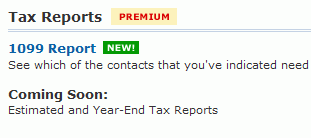 Scott Shane‘s recent article on Business Week is called, “Beware the Freelance Economy.” In it, he posits that cheering for the increased number of new businesses is premature, since so many of them are really solo practitioners (a.k.a. “freelancers”). His point is that, because of this, these firms are not realistic sources of new jobs and are unlikely to generate true wealth.
Scott Shane‘s recent article on Business Week is called, “Beware the Freelance Economy.” In it, he posits that cheering for the increased number of new businesses is premature, since so many of them are really solo practitioners (a.k.a. “freelancers”). His point is that, because of this, these firms are not realistic sources of new jobs and are unlikely to generate true wealth.
I think Scott’s analysis of these numbers is overly simplistic and missing a few critical considerations.
For starters, it is a mistake to compare solopreneurs with the traditional definition of a new business. The more meaningful comparison is between solopreneurs and employees. Entire segments of the solopreneur population are only capable of doing freelance work as a result of modern changes in technology. Without these advances, many of these individuals would have no choice but to remain beholden to an outside employer for work.
I find fault with Scott’s assertion that says it is fundamentally better for the economy for that individual to work for someone else than to work for themselves, even if they are not directly employing anyone else.
While I will absolutely concede Scott’s point that there are drawbacks to an economy with a wide proliferation of freelancers (such as the implications to both our taxation structure, as well as our health care and insurance infrastructure), I think his concerns are rooted in Industrial Age models that lack a direct one-to-one application in an Information Age.
Migration patterns within the United States in recent years have increasingly seen the population moving from the Northeast and parts of the West to Texas and the South. While the reasons can be debated or speculated upon endlessly, there are some basic facts that come with this migration: people are moving to warmer climates and lower-cost-of-living communities.
These migration patterns, coupled with the rise in freelancer enterprises, are why I consider this trend to be infinitely more positive than Scott is portraying it: once upon a time, it was necessary to live near a job. As a result, communities clustered around large employers developed high costs of living. It was the cost of doing business to be forced to contend with everything that went along with living in those environments: high rents/mortgages, long commutes, expensive food, pollution, etc.
Now that we are in an era where geography does not have to be the end all/be all of revenue, those of us who want to get out of that high-population density rat race have more options.
Case in point:
When we lived in NYC, my husband and I paid $500 per month in commuting expenses (combination of tolls, public transportation, parking fees and fuel; not counting the actual car payment and insurance). We also spent a combined 3.5 hours per day sitting in traffic. Particularly during the winter, we would be up and out the door while it was still dark, and we wouldn’t be home at night until it was dark again.
Now that we are in Texas, our commute costs are less than $75 per month. Our ‘average commute’ is less than 15-minutes each way, and we almost never leave the house before the sun is up or come home after it has gone down (unless it’s for something fun).
So, my response to Scott’s concern about freelancers not being good for the economy is that, for some people, going freelance is an opportunity to go after a much healthier, happier lifestyle. One in which there are still opportunities to support one’s family, without the trappings of being beholden to a single employer whose will could change one’s income status at any moment.
Even more than that, I would find it difficult to buy the argument that the over-all economy does not benefit from some of the perks to my freelancer schedule, which allow me far more community involvement, allow me to avoid contributing to gridlock and collaborating with other freelancers on projects that none of us would have previously been able to do if we were all working for someone else. A lower income can be easily off-set by being able to live in a community with a lower cost of living, and has lifestyle benefits that go with it that can be extremely beneficial to both the freelancer personally and the economy generally.
Last but not least, is Scott’s contention that freelancers are unlikely to generate substantial wealth. Again, the flaw I find in Scott’s argument is that he is comparing ‘the freelance economy’ to an Industrial Age definition of what a new “business” is supposed to be, instead of comparing them to traditional employment models. And, once again, once you shift the comparison, then I still think freelancers win.
Why? Because being an employee is almost never wealth generating (with rare exceptions of founding teams at startups or high-level executives). Freelancers at least stand the chance of generating true wealth — or have the possibility of a healthier, more balanced lifestyle in the meantime that helps make the tradeoff worthwhile.
I do not disagree with Scott’s point that understanding ‘new business’ stats is not black and white: none of the information should simply be taken at face value. The freelance model is somewhere in between traditional employment and traditional entrepreneurship. As a result, none of the “traditional” metrics directly apply.
But we live in an age where the democratization of data and the mobility of the workforce allow new ways for people to work together without having to incur the costs of a full-scale firm to support their business. The rules have changed, and so should our interpretation of the metrics.
In a long tail economy, I think there are far more important factors to consider than the ones that Scott has laid out. So, as one of the people who fall into the category he finds concerning, I challenge his one-sided view of the numbers with this: I have done more work in the past year as a ‘freelancer’ that has helped create jobs, revenue and wealth for more people than I did in the previous five years of being an employee for other firms.
And I am very proud of that fact.

 In
In 

 Scott Shane
Scott Shane
 Personality tests are one of my favorite types of brain candy. I find something innately amusing about trying to discern something about someone’s psyche from how they answer a quiz or the way they seat themselves around a conference table during a meeting. Whether there is validity to them or not is always secondary to how much amusement I derive from taking them — and predicting their results.
Personality tests are one of my favorite types of brain candy. I find something innately amusing about trying to discern something about someone’s psyche from how they answer a quiz or the way they seat themselves around a conference table during a meeting. Whether there is validity to them or not is always secondary to how much amusement I derive from taking them — and predicting their results.

